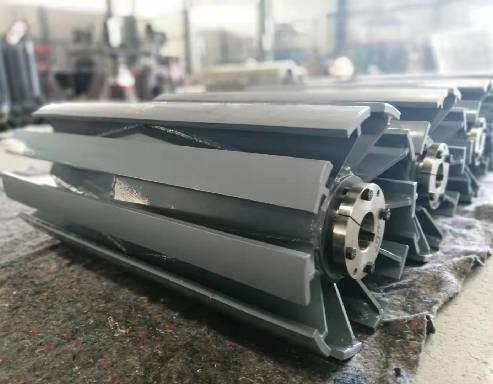 Afrikaans
Afrikaans  Albanian
Albanian  Amharic
Amharic  Arabic
Arabic  Armenian
Armenian  Azerbaijani
Azerbaijani  Basque
Basque  Belarusian
Belarusian  Bengali
Bengali  Bosnian
Bosnian  Bulgarian
Bulgarian  Catalan
Catalan  Cebuano
Cebuano  Corsican
Corsican  Croatian
Croatian  Czech
Czech  Danish
Danish  Dutch
Dutch  English
English  Esperanto
Esperanto  Estonian
Estonian  Finnish
Finnish  French
French  Frisian
Frisian  Galician
Galician  Georgian
Georgian  German
German  Greek
Greek  Gujarati
Gujarati  Haitian Creole
Haitian Creole  hausa
hausa  hawaiian
hawaiian  Hebrew
Hebrew  Hindi
Hindi  Miao
Miao  Hungarian
Hungarian  Icelandic
Icelandic  igbo
igbo  Indonesian
Indonesian  irish
irish  Italian
Italian  Japanese
Japanese  Javanese
Javanese  Kannada
Kannada  kazakh
kazakh  Khmer
Khmer  Rwandese
Rwandese  Korean
Korean  Kurdish
Kurdish  Kyrgyz
Kyrgyz  Lao
Lao  Latin
Latin  Latvian
Latvian  Lithuanian
Lithuanian  Luxembourgish
Luxembourgish  Macedonian
Macedonian  Malgashi
Malgashi  Malay
Malay  Malayalam
Malayalam  Maltese
Maltese  Maori
Maori  Marathi
Marathi  Mongolian
Mongolian  Myanmar
Myanmar  Nepali
Nepali  Norwegian
Norwegian  Norwegian
Norwegian  Occitan
Occitan  Pashto
Pashto  Persian
Persian  Polish
Polish  Portuguese
Portuguese  Punjabi
Punjabi  Romanian
Romanian  Russian
Russian  Samoan
Samoan  Scottish Gaelic
Scottish Gaelic  Serbian
Serbian  Sesotho
Sesotho  Shona
Shona  Sindhi
Sindhi  Sinhala
Sinhala  Slovak
Slovak  Slovenian
Slovenian  Somali
Somali  Spanish
Spanish  Sundanese
Sundanese  Swahili
Swahili  Swedish
Swedish  Tagalog
Tagalog  Tajik
Tajik  Tamil
Tamil  Tatar
Tatar  Telugu
Telugu  Thai
Thai  Turkish
Turkish  Turkmen
Turkmen  Ukrainian
Ukrainian  Urdu
Urdu  Uighur
Uighur  Uzbek
Uzbek  Vietnamese
Vietnamese  Welsh
Welsh  Bantu
Bantu  Yiddish
Yiddish  Yoruba
Yoruba  Zulu
Zulu Understanding Heavy Duty Conveyor Belt Rollers and Their Importance in Industrial Applications
Heavy Duty Conveyor Belt Rollers The Backbone of Material Handling
In the world of industrial and manufacturing operations, efficiency and reliability are paramount. One of the critical components that contribute significantly to these objectives is the heavy-duty conveyor belt roller. These rollers serve as the backbone of conveyor systems, facilitating the smooth and effective transport of materials within various industries, including mining, construction, agriculture, and logistics.
Understanding Conveyor Belt Rollers
Conveyor belt rollers are cylindrical components that support and guide the conveyor belt, enabling it to move materials from one point to another. Heavy-duty variants of these rollers are specifically designed to withstand high loads, rough conditions, and extreme environments. Made from robust materials such as steel or heavy-duty plastic, these rollers are engineered to offer maximum durability and performance.
Importance of Heavy-Duty Rollers
1. Load Support The primary function of heavy-duty conveyor belt rollers is to support the weight of the conveyor belt, as well as the materials it transports. These rollers are designed to bear tremendous loads without warping or failing, ensuring that the conveyor system operates smoothly even under extreme conditions.
2. Reduced Friction High-quality rollers significantly reduce friction between the conveyor belt and the supporting surface. This reduction in friction not only enhances the efficiency of the conveyor system but also prolongs the lifespan of both the belt and the rollers.
3. Minimized Wear and Tear Heavy-duty rollers are designed to endure harsh operating conditions, such as abrasive materials, extreme temperatures, and constant exposure to moisture. Their robust construction helps minimize wear and tear, reducing maintenance costs and downtime associated with conventional rollers.
heavy duty conveyor belt rollers

4. Enhanced Material Handling A reliable conveyor system can accelerate the material handling process, reduce manual labor, and increase productivity. Heavy-duty rollers ensure that materials are transported smoothly and safely, minimizing the risk of spillage or damage during transit.
Types of Heavy-Duty Conveyor Rollers
There are various types of heavy-duty conveyor rollers tailored to specific applications
- Idler Rollers These are used to support the conveyor belt and assist in the movement of materials. They can be fixed or adjustable, depending on the system design.
- Drive Rollers These rollers are powered and provide the necessary movement to the conveyor system. They are integral in ensuring the belt runs smoothly and efficiently.
- Return Rollers These are positioned underneath the conveyor to support the weight of the belt as it returns to the starting point. They play a crucial role in preventing belt sagging and maintaining the alignment of the conveyor system.
Conclusion
Heavy-duty conveyor belt rollers are essential for any industrial operation that prioritizes efficiency and reliability in its material handling processes. By supporting heavy loads, reducing friction, and minimizing wear and tear, these rollers enable conveyor systems to operate at peak performance. Investing in high-quality heavy-duty rollers not only enhances productivity but also ensures the longevity of the entire conveyor system. As industries continue to evolve, the demand for reliable and efficient material handling solutions will only grow, making heavy-duty conveyor belt rollers a vital component in the future of industrial operations.
-
Revolutionizing Conveyor Reliability with Advanced Rubber Lagging PulleysNewsJul.22,2025
-
Powering Precision and Durability with Expert Manufacturers of Conveyor ComponentsNewsJul.22,2025
-
Optimizing Conveyor Systems with Advanced Conveyor AccessoriesNewsJul.22,2025
-
Maximize Conveyor Efficiency with Quality Conveyor Idler PulleysNewsJul.22,2025
-
Future-Proof Your Conveyor System with High-Performance Polyurethane RollerNewsJul.22,2025
-
Driving Efficiency Forward with Quality Idlers and RollersNewsJul.22,2025





























